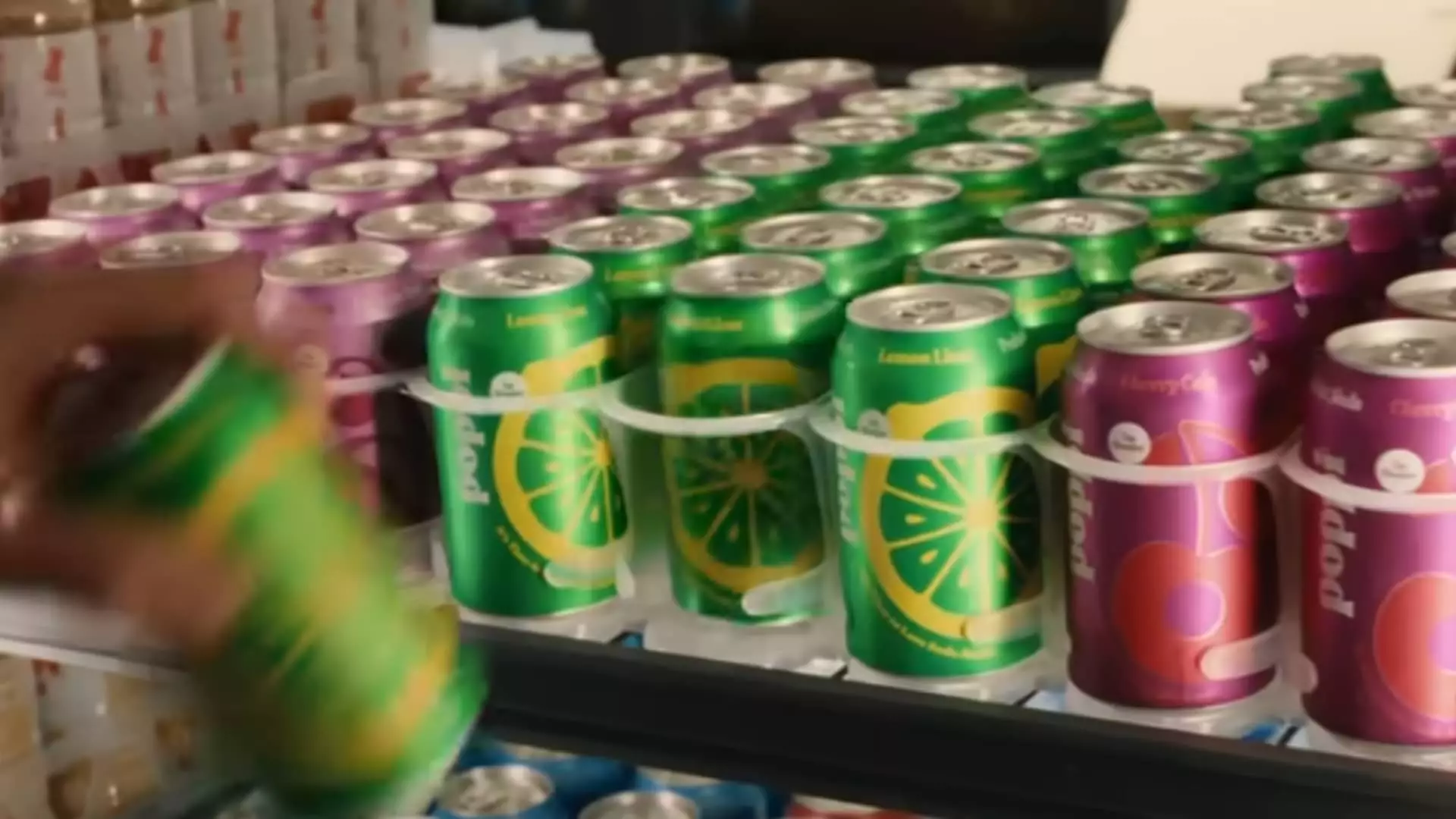In a world increasingly driven by health awareness, PepsiCo’s decision to acquire the prebiotic soda brand Poppi for a staggering $1.95 billion is a striking testament to the evolving landscape of consumer preferences. Over two decades, traditional soda consumption has plummeted in the United States, yet the past five years have witnessed a revival, spurred predominantly by innovative entrants like Poppi and its counterpart, Olipop. This acquisition not only signals Pepsi’s recognition of the health trend but also highlights its strategic maneuvering to stay relevant amid declining sugary soda sales.
A Competitive Landscape and Strategic Play
The soft drink market is no longer a playground exclusively for legacy brands like Pepsi and Coca-Cola. Both giants are now targeting the burgeoning segment of functional beverages that offer supposed health benefits. With Poppi and Olipop attracting health-conscious consumers, Pepsi’s decision to withdraw from launching its own Soulboost functional soda to instead pursue Poppi is a calculated risk that embodies the urgency to adapt. The savvy business move demonstrates an understanding that rather than trying to fight for market share in a saturated space, it is more prudent to acquire proven brands that resonate with consumers.
Financial Implications and Future Prospects
Despite the hefty price tag, it’s worth delving deeper into the financial mechanics of the deal. The effective net purchase price of $1.65 billion, taking into account $300 million in expected tax benefits, illustrates Pepsi’s belief in Poppi’s potential. Furthermore, tying additional payments to performance milestones is a smart strategy. While lucrative, it also emphasizes the inherent risk involved; if Poppi fails to maintain its growth trajectory, Pepsi could be left holding the bag. In the unpredictable beverage market, growth is neither guaranteed nor consistent, raising concerns about Pepsi’s financial foresight.
The Controversial Health Claims
Poppi’s meteoric rise hasn’t been without its trials. The company has faced criticism regarding its health claims, culminating in a recent class-action lawsuit alleging the drinks fall short of their advertised benefits. Settling for $8.9 million is a bitter pill to swallow for Poppi and casts a shadow over its future reputation. As Pepsi wades into this venture, the potential damage to Poppi’s brand integrity looms large. The subjectivity of health claims in marketing continues to be a double-edged sword that can swiftly turn public perception from favor to distrust.
A Broader Trend Amidst Corporate Maneuvering
The whirlwind of acquisitions and mergers in the beverage industry is not merely a response to changing consumer habits but a reflection of deeper societal shifts toward health and wellness. While PepsiCo’s move is a notable step, it also raises questions about authenticity in health marketing. Can consumers trust that these sugary alternatives will genuinely deliver the promised health benefits? As the lines blur between traditional soda and purportedly healthier options, it becomes essential for corporations to transcend mere capitalistic gain and embody the health ethos they promote.

Leave a Reply